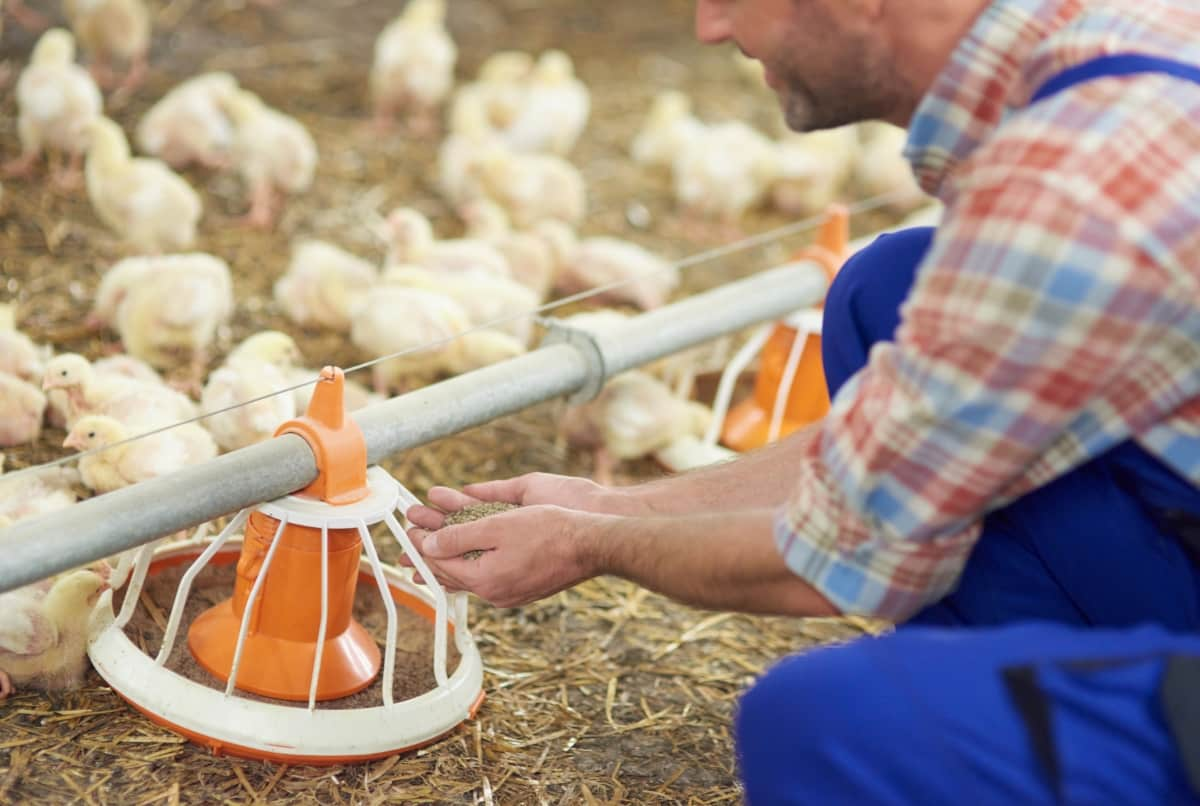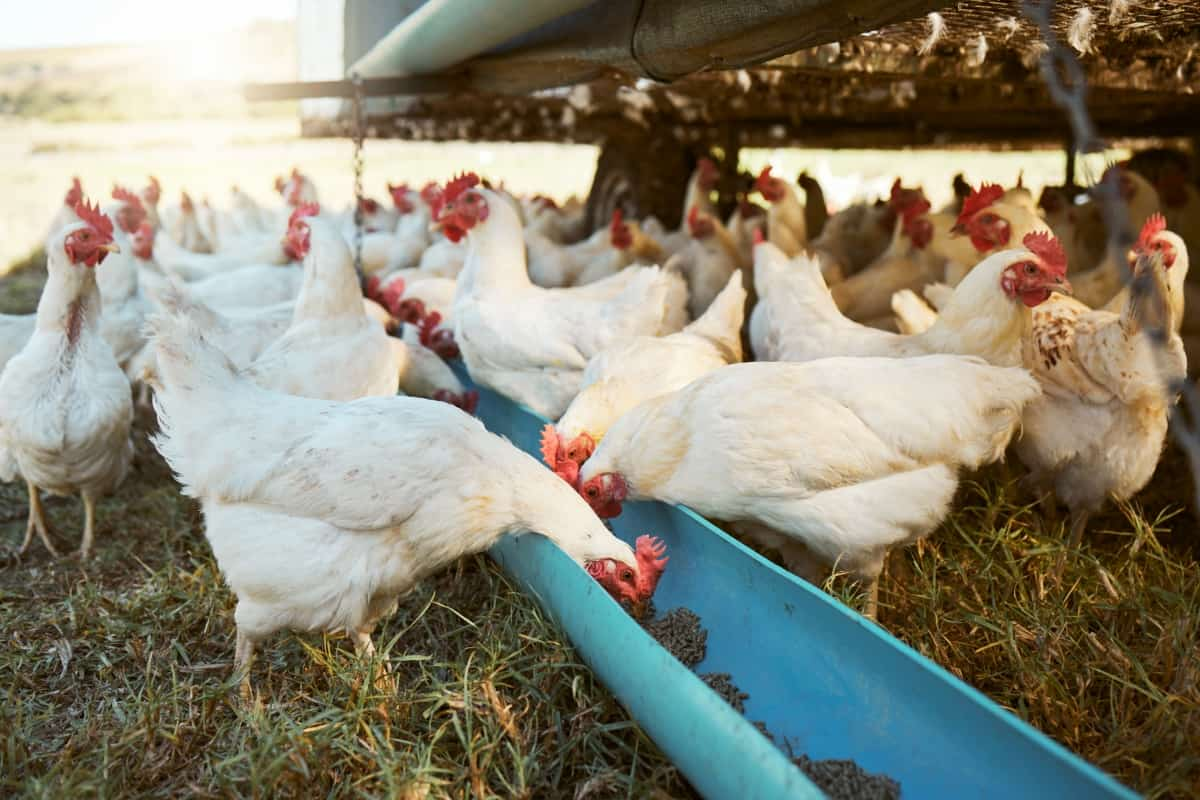Whether you are new to the poultry farming industry or a seasoned poultry farmer, understanding what you feed your chickens is paramount. Many farmers and hobbyists have been increasingly turning to organic chicken feed, which can positively impact the health of their chickens and, consequently, the quality of the eggs or meat they produce. Homemade organic chicken feed and organic chicken feed formulation are two topics we shall dive into as we explore the broad and intricate world of organic chicken feed.

How to Choose Organic Chicken Feed
Best Organic Chicken Feed Brands
The market for organic chicken feed has expanded tremendously over the past few years, with many brands popping up to cater to the rising demand. Some of the most reputable brands include Scratch and Peck Feeds, Kalmbach Feeds, Coyote Creek Certified Organic Feed, and Modesto Milling.
These brands have differentiated themselves with their consistency in quality, nutrient-rich formulations, and strict adherence to organic farming guidelines. Whether you’re looking for starter crumbles or layer pellets, these brands offer various organic options that cater to different poultry needs.
Non-GMO Chicken Feed Options
An integral component of organic chicken feed is its Non-GMO nature. Non-GMO feeds are those that are void of any genetically modified organisms. Brands like Hiland Naturals, Texas Natural Feeds, and Prairie’s Choice offer premium Non-GMO chicken feed. These feeds respect the natural genetic structure of the feed ingredients and reduce exposure to potential toxins that may be associated with genetically modified feeds.
Benefits of Organic Chicken Feed
Organic chicken feed presents a host of benefits. Primarily, it is free from synthetic additives, pesticides, and genetically modified organisms (GMOs), making it a healthier choice for your flock. Chickens fed with organic feed tend to be healthier and have stronger immunity, thus lowering their susceptibility to diseases. Furthermore, when consumed, organic feed often produces higher-quality eggs and meat, contributing to human health.
Choosing the Right Organic Feed for Chickens
Choosing the right organic feed for your chickens depends on several factors, including the chicken’s age, the purpose of the chicken (laying, broiler, or show), and specific health needs. Layer feed, for example, has a higher calcium content for stronger eggshells, while starter feed is rich in proteins needed for young chicks’ growth. Understanding your chickens’ nutritional needs is key to selecting the appropriate organic feed.
Natural Ingredients in Organic Chicken Feed
Typical ingredients in organic chicken feed include grains like corn, oats, and barley, protein sources like soybean meal, and various vitamins and minerals. Importantly, these ingredients are grown without synthetic fertilizers, pesticides, or GMOs. Some brands also incorporate probiotics to support gut health or herbs for their health-boosting properties.
Understanding Nutritional Requirements for Organic Chickens
Organic chickens, like any other, have specific nutritional requirements that must be met for them to thrive. This includes proteins for growth and feather production, carbohydrates for energy, and calcium for eggshell development. These requirements vary across different life stages and purposes of the chicken. Therefore, organic chicken feed formulation must be designed to meet these nutritional needs while adhering to organic farming standards.
In case you missed it: How to Raise Chicken and Quail Together: A Comprehensive Guide

How to Identify High-Quality Organic Chicken Feed
Identifying high-quality organic chicken feed relies on understanding the nutritional needs of your chickens and the ability to read and interpret feed labels. An ideal organic feed contains a proper mix of proteins, carbs, and vital nutrients. It should also be certified organic, meaning it is GMO-free and contains no synthetic additives.
Organic Chicken Feed Vs. Conventional Feed: Pros and Cons
Choosing between organic and conventional feed comes down to weighing the pros and cons. Organic feed, although costlier, is devoid of synthetic chemicals and GMOs and may result in healthier, more productive chickens and superior-quality eggs and meat. Conversely, conventional feed is cheaper and more readily available but may contain synthetic additives and GMOs. The choice between the two depends on factors like your budget, health considerations for your flock, and personal preferences.
Avoiding Common Pitfalls when Buying Organic Chicken Feed
When buying organic chicken feed, there are common pitfalls to avoid. One of these is not checking for certification labels, which guarantee that the feed is truly organic. Another is not understanding the nutritional needs of your chickens, resulting in the purchase of feed that lacks the necessary nutrients. Lastly, never assume that all organic feeds are the same. Different brands may have different ingredient compositions and nutritional profiles, so reading the label is essential.
Certifications and Labels for Organic Chicken Feed
Organic chicken feed should come with certifications and labels, the most common being the USDA Organic seal. This certification ensures that the feed is made of at least 95% organic ingredients and is produced without synthetic pesticides, fertilizers, or GMOs. Other relevant labels include Non-GMO Project Verified, which confirms the feed doesn’t contain genetically modified organisms, and Animal Welfare Approved, which shows the feed comes from farms prioritizing animal welfare.
Experimenting with Homemade Organic Chicken Feed
Another step poultry farmers or enthusiasts can take experimenting with homemade organic chicken feed. This option allows total control over what your chickens consume and could lower feeding costs. Ingredients for homemade feeds like grains, legumes, and other protein sources can be sourced locally, ensuring they are organic and GMO-free. You can find organic chicken feed recipes in many poultry care sources, which you can customize for your chickens’ unique requirements.
In case you missed it: How to Identify and Treat Bumblefoot in Chickens: The Complete Car Guide

However, careful attention must be paid to nutritional balance, ensuring that the homemade feed meets your chickens’ necessary protein, carbohydrate, and micronutrient requirements. One might also consider adding a supplement to the homemade feed to cover all nutrient needs. As always, any change in diet should be closely monitored to ensure it benefits the flock’s health and productivity.
Conclusion
Transitioning to organic chicken feed can be a game-changer for poultry farming or homesteading, with benefits spanning from improved chicken health to better quality produce. However, the choice of feed should be guided by a good understanding of organic chicken feed, including knowledge about the best brands, the benefits, how to choose the right feed, understanding the nutritional requirements for organic chickens, identifying high-quality feed, and the pros and cons vis-a-vis conventional feed.
Proper attention should also be paid to certifications and labels to ensure the feed is organic and up to standard. Avoiding common pitfalls when buying can further guarantee to acquire the best quality organic chicken feed for your flock.
- Feed Your Flock for Less: Top 10 Tips to Save on Chicken Feed
- Ultimate Guide to Ossabaw Island Hog: Breeding, Raising, Diet, and Care
- Hatching Answers: The Top 10 Reasons Your Chickens Aren’t Laying Eggs
- Eggs and Economics: Breaking Down the Cost of Raising Backyard Chickens
- Defend Your Greens: Proven Methods to Keep Iguanas Out of Your Garden
- Ultimate Guide to Cinnamon Queen Chicken: A Comprehensive Guide for Beginners
- Ultimate Guide to California Tan Chicken: Breeding, Raising, Diet, Egg-Production and Care
- Ultimate Guide to Marsh Daisy Chicken: Breeding, Raising, Diet, and Care
- 10 Types of Chicken Farming Businesses You Can Start for Profits